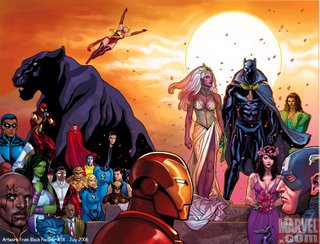 Literacy instruction should include a combination of teaching techniques to empower African American students and it should be a vehicle to examine how cultural definitions of race and class are constituted historically and socially. Schools are part of a wider dominant culture that marginalizes the experiences of many African American students, preventing these students from drawing upon these experiences to gain control of their lives.
Literacy instruction should include a combination of teaching techniques to empower African American students and it should be a vehicle to examine how cultural definitions of race and class are constituted historically and socially. Schools are part of a wider dominant culture that marginalizes the experiences of many African American students, preventing these students from drawing upon these experiences to gain control of their lives.Alfred W. Tatum author of
Teaching Reading to Black Adolescent Males: Closing the Achievement Gap
There was a rumor going around that, shortly before the launch of the orignal BLACK PANTHER, Chris Claremont— Marvel's Director of Quality Control at the time— scoffed that the book wouldn't last six issues. The rumor had it that Marvel Knights honcho and PANTHER Editor Joe Quesada, angered and annoyed that a Marvel officer was prejudicing people against his book, stormed into Claremont's office, put a thousand dollars in cash on Claremont's desk, and demanded Claremont either shut up or put his money where his mouth was. I am told Claremont did not take Joe's bet. As it turns out, that was a good thing (and, rumors being rumors, I'm sure this big fish story has been embellished over time). At this writing, I am spending the weekend re-writing scenes in BLACK PANTHER #53, the fifty-third issue of a book nobody (myself included) thought would go past issue #12, but a book that has been dogged, from issue #1, with rumors and predictions of cancellation.
Marvel Comic Editor in Chief Joe Quesada can see ther future of comics and knows its not
 monochromatic. Understanding that to in order to attract readers from European, Latin and Asian markets comics must expand their thinking. Quesada gave Black Panther his own comic when he cam onboard in 1998 and has supported diversifying character since.
monochromatic. Understanding that to in order to attract readers from European, Latin and Asian markets comics must expand their thinking. Quesada gave Black Panther his own comic when he cam onboard in 1998 and has supported diversifying character since.Quesada recalls the 2004 debut of Arana, a Hispanic girl with Spider-Man-like powers. She made a big splash and quickly received her own series in 2005, but it lasted only a year. It is with his blessing that Marvel is taking a chance to make the Black Panther/Storm wedding is a reality.
Another hero is Judd Winick, the comics writer who is perhaps still best known as a cast
 member of MTV's 1994 "Real World," also emphasizes diversity in his work. He introduced a Japanese lesbian superhero during his tenure (2001 to 2003 ) on "Exiles," a Marvel comic about mutants saving alternate realities from destruction. "Outsiders," which he currently writes for DC, has a multiethnic cast that includes Grace, a rowdy Chinese-American powerhouse, and Thunder, the daughter of Black Lightning. Winick even had Green Arrow, as the mayor of Star City, legalize gay marriage.
member of MTV's 1994 "Real World," also emphasizes diversity in his work. He introduced a Japanese lesbian superhero during his tenure (2001 to 2003 ) on "Exiles," a Marvel comic about mutants saving alternate realities from destruction. "Outsiders," which he currently writes for DC, has a multiethnic cast that includes Grace, a rowdy Chinese-American powerhouse, and Thunder, the daughter of Black Lightning. Winick even had Green Arrow, as the mayor of Star City, legalize gay marriage."It's nice when a young reader can gravitate toward a character and feel represented," he said. Winick, who is white, said that wasn't always the case, citing the experience of his wife (and "Real World" cast mate) Pam Ling, a Chinese-American who, with her sisters, used to watch "Wonder Woman" because of her dark hair. "That's as close as she was going to get" to a sense of kinship, he said.
"When I get gripes for my need to force my social agenda into comics, I always ask: which social agenda are you complaining about? Is it the gay people? Or the black people or the Asian people?
"After a while, it doesn't look like a social agenda. This is the world we live in."
Straight (and not) out of the comics
No comments:
Post a Comment